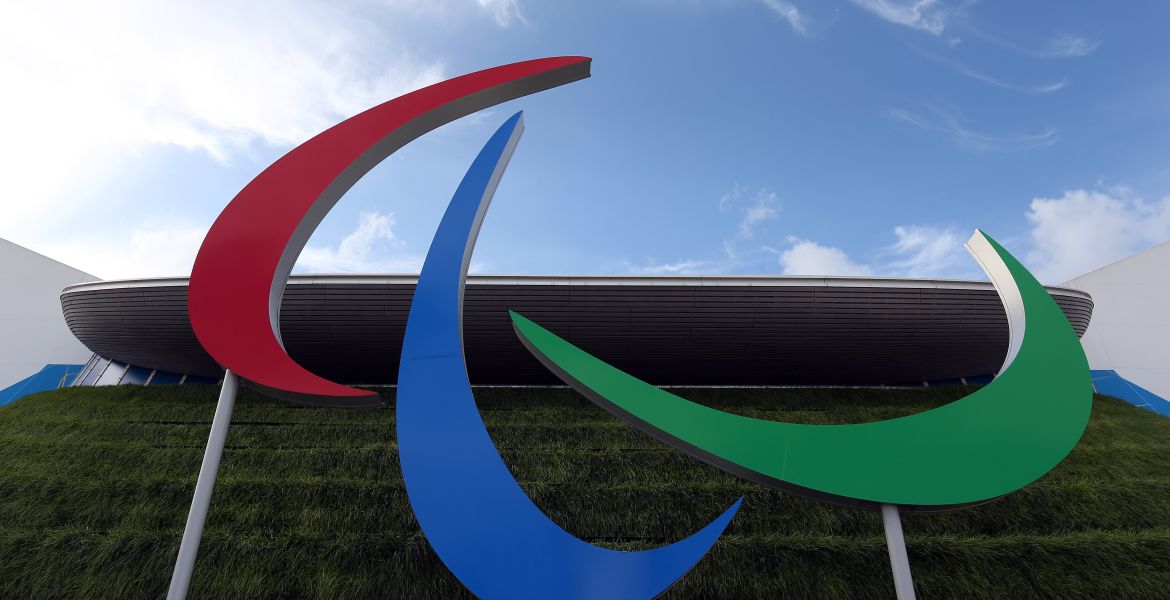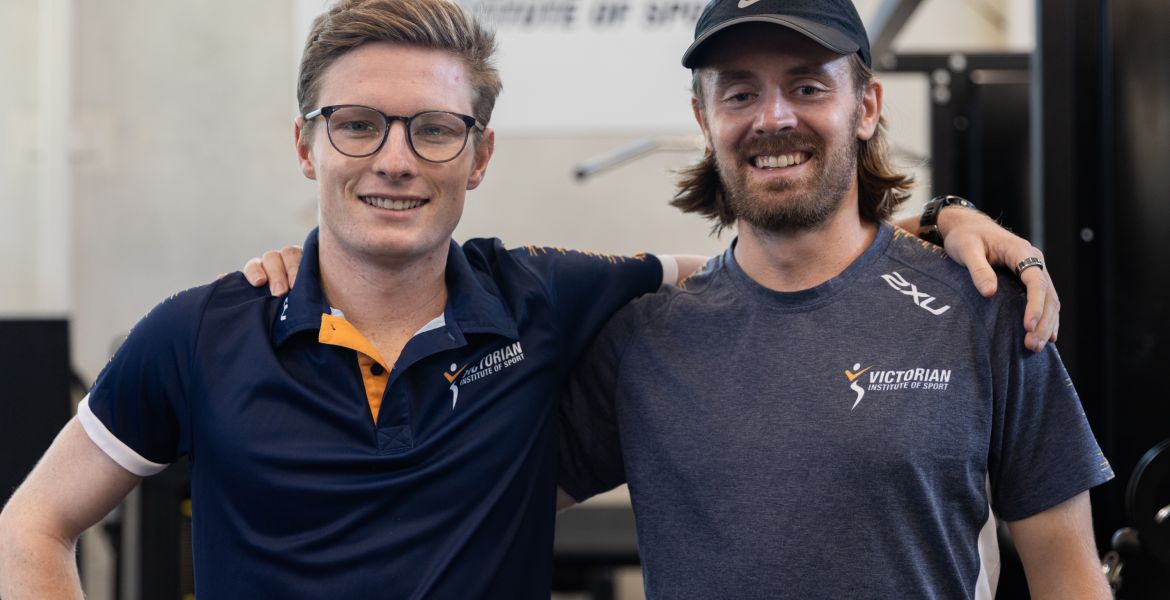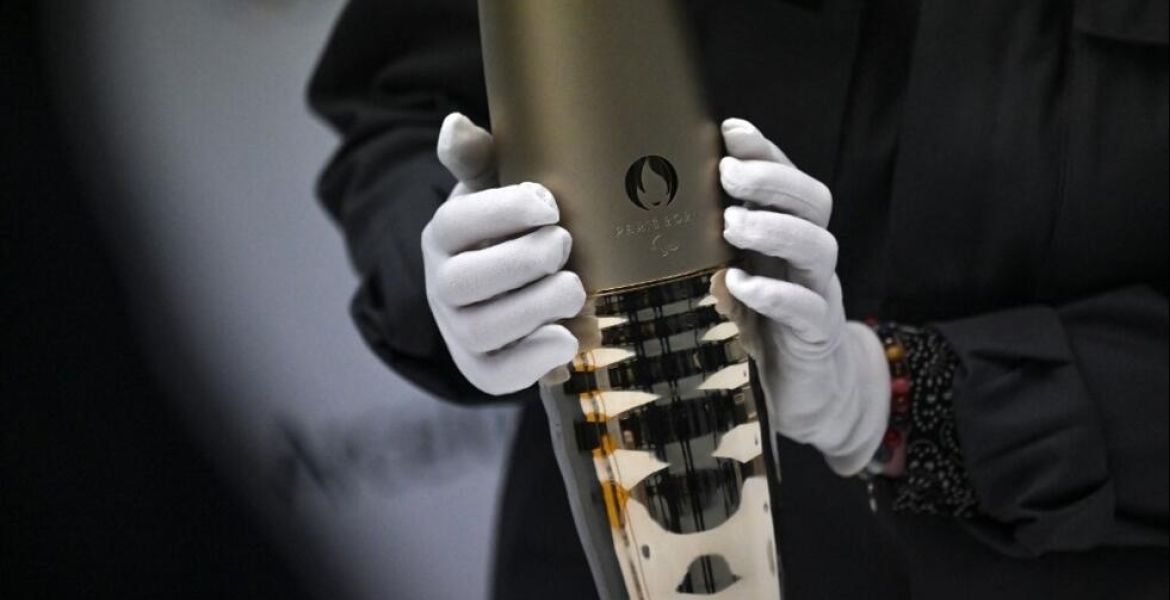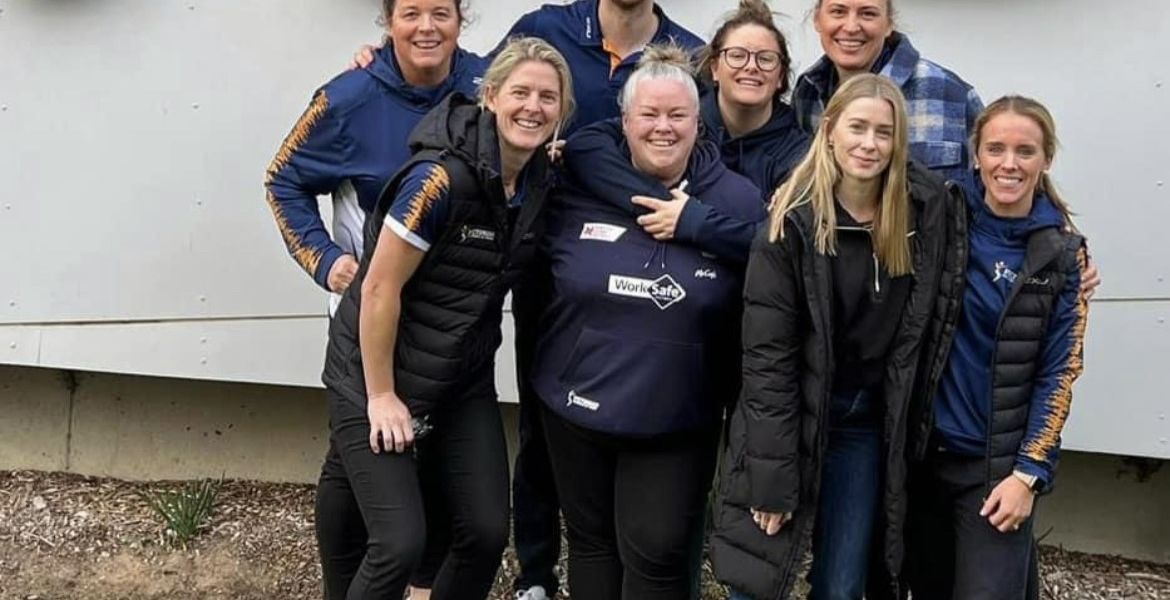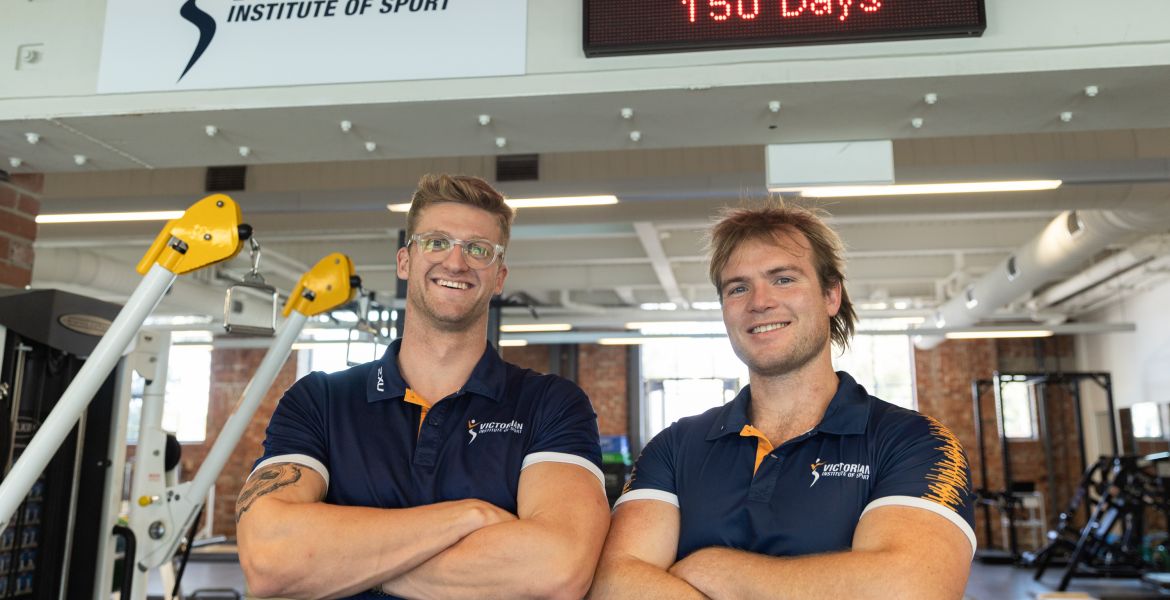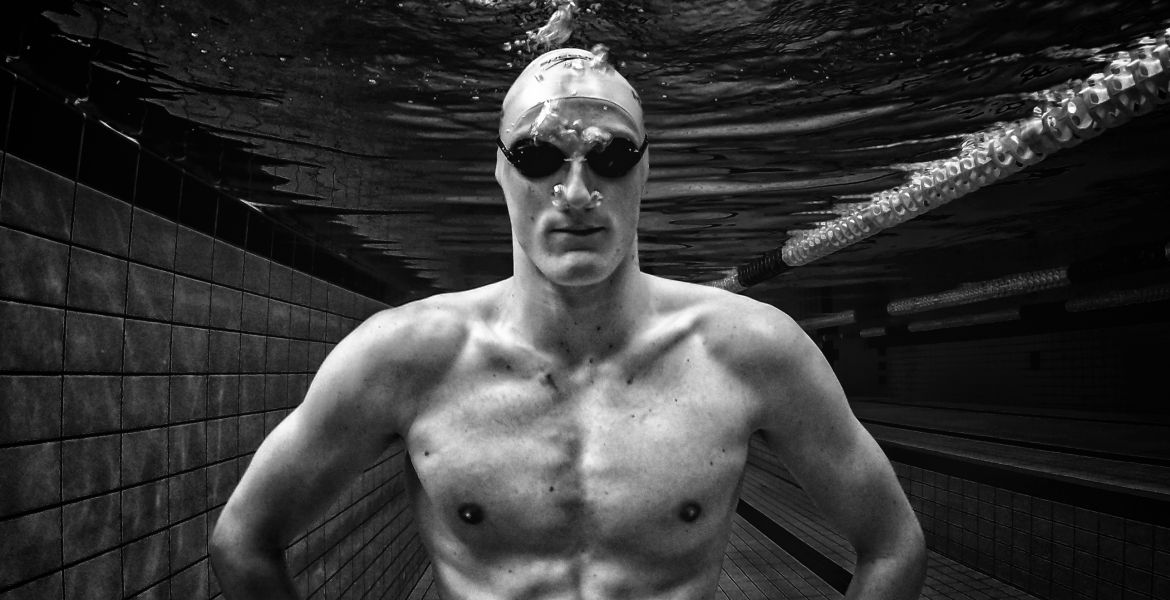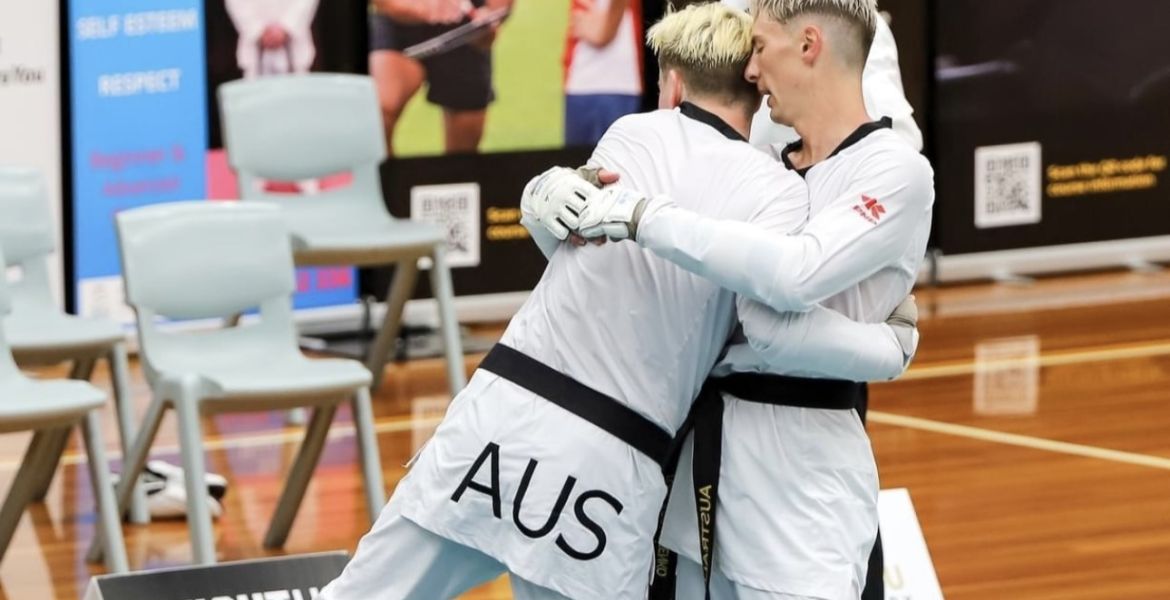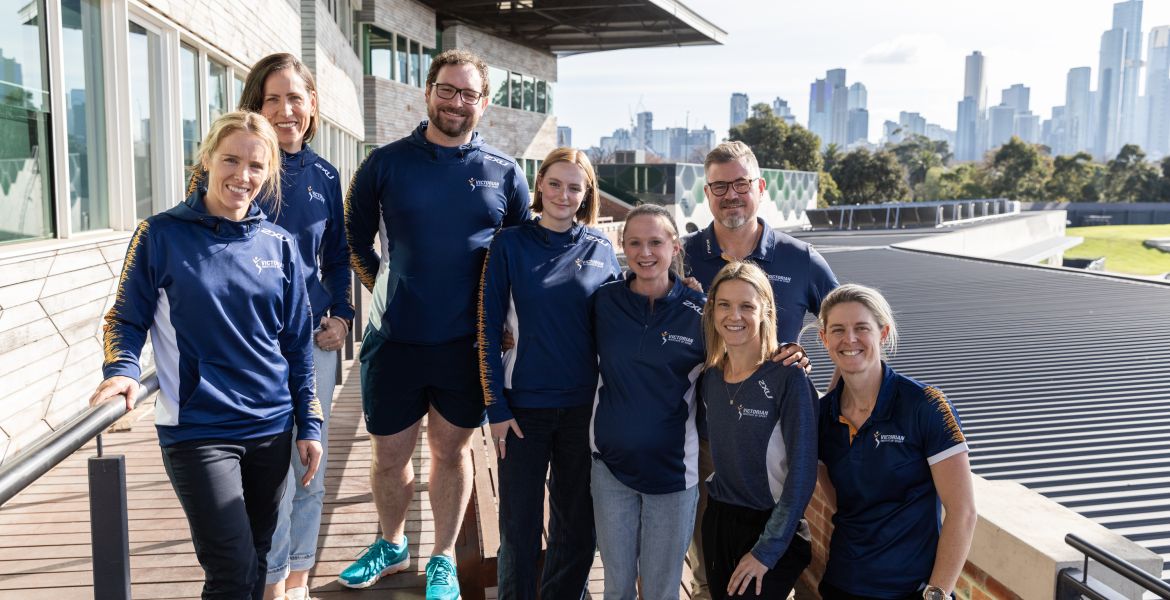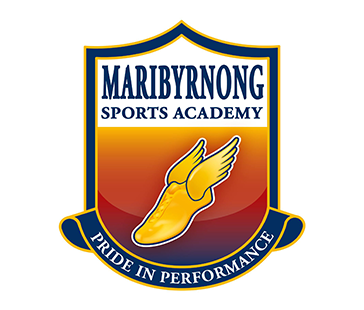The ‘Oarsome Foursome’ showed the world that you can never write off champions at the 1996 Atlanta Olympic Games. Through the highs and lows of Australian rowing, the ‘Oarsome Foursome’ proved that champions will always find a way to succeed.
The ‘Oarsome Foursome’ crew was first formed in 1990 on Lake Barrington, Tasmania, the same year the Victorian Institute of Sport (VIS) was established. The Heavyweight coxless four consisted of Nick Green, Mike McKay, James Tomkins and Sam Patten and was coached by VIS rowing coach, Noel Donaldson.
All athletes were granted VIS scholarships and were influential in the Institutes successful start. As well as having access to the VIS facilities they also had their training base at the Mercantile Rowing Club.
Andrew Cooper later replaced Sam Patten and the boat continued to dominate the sport, winning gold at the Barcelona 1992 Olympic Games and putting rowing on the map in Australia.
A year later the crew went into a ‘temporary retirement.’ It wasn’t until 1994 they decided to join the comeback trail in the hope to once again dominate the sport.
In 1995, crew member Andrew Cooper announced his retirement and the ‘Oarsome Foursome’ started to question their own ‘motivation’ to continue in the sport.
Drew Ginn, a young Scotch College student, who was coached by one of the crew members James Tomkins at school, burst onto the scene. He was trialled and soon selected in the new look ‘Oarsome Foursome.’
His selection sparked a flame that helped the champions show the world at the 1996 Atlanta Olympic Games why they really were so awesome. He caught up with the VIS to reflect on those more challenging years and how they were able to win back-to-back gold medals.

Image: The Oarsome Foursome in action in Atlanta.
A clear pathway to success
Ginn never thought that representing Australia at the Olympics in 1996 was possible until he stepped foot in the Victorian Institute of Sport.
At the VIS he would read in the 'Pinnacle Magazine' about his childhood heroes and their pathway to success, which spurred him onto realise that his dream of competing at the Olympic Games could become a reality. The Pinnacle Magazine is the VIS’ publication which consists of athletes sporting journeys, and their successes in both sport and life.
“Reading about the pathway that the athletes took from a young person to an Olympic champion really helped me on my journey to success, you could see just how long the process took.” He said.
He specifically remembers reading about the likes of Peter Antonie, and his Scotch College rowing coach James Tomkins which made him see that his journey was very similar.
Two years later he made his Australian representative debut in the 1994 U23 Trans Tasman series against New Zealand in the men’s eight. He admitted that he started to believe “if the timing is right” he might just be able to go to Atlanta.
The ‘Not so Awesome Foursome’
In 1994 The ‘Oarsome Foursome’ decided to come out of their ‘temporary retirement’ with the hopes of reclaiming their World Championship title and ultimately their Olympic Games gold medal.
Their international comeback tour started on Lake Barrington in April 1995, but the champions took a knock when members of the crew struggled for form in the coxless pair. Noel Donaldson still insisted though, that the ‘foursome’ remained intact to retain their Olympic crown the following year.
Their next stop was in Switzerland at the Lucerne International Regatta, an event regarded as second only in importance to the world championships. The ‘Oarsome Foursome’ went in with high hopes but were unsuccessful, bowing out of the semi-finals.
Two months later, again, the 'Oarsome Foursome' were unable to get back to their winning ways. At the World Rowing Championships in Finland, they placed fifth in the final which led to many questioning how serious the crew actually were after two years off.
Later that year, in October 1995, things got a little harder for the ‘Oarsome Foursome’ when Andrew Cooper announced his retirement from rowing as his work and other commitments meant he could no longer give 100 percent effort.
Rowing Australia had circled a few names to replace Cooper, but there were fears that the 'Oarsome Foursome's' International days were over. At the time, Drew Ginn's name was about third or fourth on the list, but a couple of injuries gave him his opportunity to trial.
Head coach of the ‘Foursome’, Noel Donaldson recalls exactly what Ginn said to him when he tapped him on the shoulder to let him know he would be getting his chance.
“He said to me; ‘Just you wait, I’ll be in that crew next year and we will win Gold.”
At the time being young and enthusiastic, Ginn couldn’t wait to get in the boat with his childhood heroes and show them what he was made of.
“I recall at the time being very nervous, but it was only the pressure I put on myself and thinking about what it would take of me to perform with them.” He said.
“But at the same time, I was young, I was enthusiastic to have a crack, and I quickly realised that whilst they were champions, they were also just people.”
Ginn was the third bowman to trial and it was with great success. The ‘Oarsome Foursome’ had their best result in years and the thoughts of reclaiming their second Olympic title started to creep in.
In early 1996, although Ginn's inclusion was starting to generate some belief within the team there was still quite a lot of negative press. So much so, that Noel Donaldson banned the media from speaking to his rowers and writing negatively about them so close to Olympic selection.
To this day, Donaldson still remembers the moment Rowing Australia's Chairman of Selectors, David Yates announced that The Australian Olympic Team would be "sticking with what they know" and taking the men's four to Atlanta.
"We trust these guys." Yates announced,
Whilst there was still a lot of work to be done, Donaldson admits that he always remained optimistic with the team’s shot at reclaiming their title, he knew that they were still getting "better and better".

Image: Atlanta welcome The Australian Rowing Team
Figuring out the right recipe.
In the build-up to Atlanta, Ginn had just turned 21 and was very young to be going to the Olympics. But he had a real energy about him that gave the crew belief they could go back-to-back.
According to Ginn, Mike McKay was known to be the brains behind the boat and would constantly be figuring out how much harder they would have to train to compete and eventually beat the best in the world.
“Mike was always working out how we could train more efficiently, he would work out how many minutes per second we would have to paddle at training to beat the best, and if we got beaten, then his eagerness to improve just grew bigger.” Ginn explained.
“At the time the Italians were the ones to beat, but Mike had already worked out what it would take us mentally and emotionally to overcome them.”
Even though the new look 'Oarsome Foursome' didn't have the results on the board, the Aussies always knew they could beat the Italians, as long as they could perform when it mattered most. Ginn insisted that at the time there was a lot of things going right behind the scenes, but the crew just hadn’t figured out the “right recipe.”
“Our edge was that building towards the Games we were just getting better and better.” He said.

Image: The media set up to photograph the 'Oarsome Foursome' as they enter the bank after successfully reclaiming their Olympic title.
Trusting our processes
When the ‘Oarsome Foursome’ arrived in Atlanta they were the 'underdogs' to win gold. But it was those who knew about the sport, knew that the crew could do anything in Atlanta if they got it right.
The crew used the fact that news outlets had already written them off to motivate their drive for success.
Ginn said that he was never sure if the ‘Oarsome Foursome’ crew could beat the Italians, but he was always optimistic they would, and always believed it was possible.
“I was alongside the best rowers, coaches and had access to some of the best facilities in the world. So by the time we got to the start line, all we had to do was trust our processes.”
Ginn always knew that his crew mates were ‘big time performers’ and started to understand that winning gold medals at the Olympic Games is the main reason you train as hard you do for so long.
“The race is like the holy grail – delivering on everything you aspired and dreamt about.”
“As soon as we started rowing in that final, in that moment, one stroke at a time, all of a sudden everything felt easy, even though you are going through so much pain.”
When the ‘Oarsome Foursome’ crossed the line and became back-to-back Olympic champions, they proved to the world that through thick and thin, champions will always find a way to succeed.

Image: (Left) James Tomkins, Nick Green, Mike McKay and Drew Ginn posing with their Olympic gold medals.


